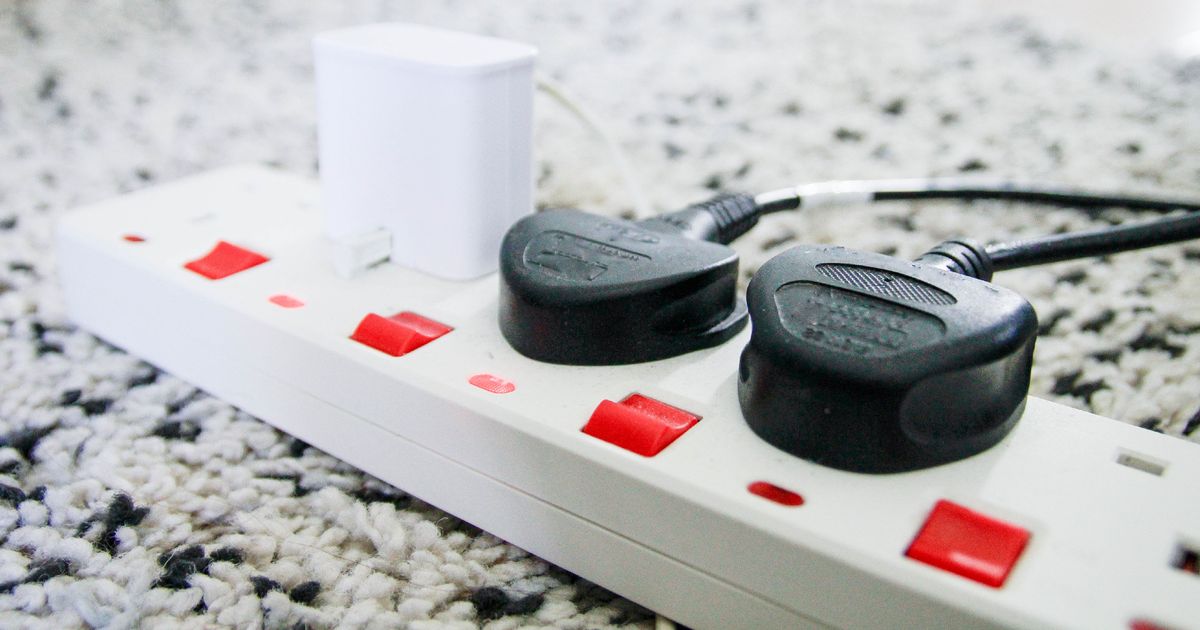Lifestyle
Expert Warns: 3 Household Items to Avoid Plugging into Extension Leads

A recent warning from fire safety experts underscores the potential dangers of using extension leads with certain household items. According to Electrical Safety First, improper use of extension leads can significantly increase the risk of fire, particularly when connecting specific appliances.
In a statement issued in March 2024, the organization highlighted three common household items that should never be plugged into extension leads. These items include heaters, irons, and refrigerators. Each of these appliances poses unique hazards when used improperly, leading to potential overheating and electrical fires.
Understanding the Risks
The dangers associated with extension leads are often underestimated. Many households rely on them to manage multiple devices, especially in spaces with limited outlets. However, the improper use of these leads can result in serious safety risks.
Heaters are particularly problematic. They draw a significant amount of power, and when plugged into an extension lead, they can easily exceed the lead’s capacity. This can result in overheating, which may ignite surrounding materials. Experts recommend using heaters directly plugged into wall sockets to ensure safety.
Similarly, irons should be connected directly to wall outlets. The combination of heat and electrical load can create a hazardous situation if an iron is plugged into an extension lead. Many are unaware that the heat produced by these appliances can not only damage the extension lead itself but also cause fires.
Finally, using a refrigerator with an extension lead can lead to complications. Refrigerators require a consistent power supply to function correctly. If an extension lead is used, fluctuations in power can disrupt the appliance’s operation, potentially leading to spoilage of food and further electrical issues.
Best Practices for Safe Use
To mitigate risks, homeowners should adopt safe practices when using extension leads. It is crucial to avoid daisy-chaining multiple extension leads together, as this can create an overload situation. Additionally, regularly inspecting extension leads for wear and damage can help prevent accidents before they occur.
Electrical Safety First recommends using extension leads with built-in surge protection for added safety. Such devices are designed to handle higher loads and can protect appliances from voltage spikes.
Awareness of these risks is essential for maintaining a safe home environment. By understanding the limitations of extension leads and adhering to safety guidelines, individuals can significantly reduce the chances of electrical fires and ensure their homes remain safe.
As the warning from experts resonates, it serves as a reminder for all households to evaluate their use of extension leads and to prioritize safety in their daily routines.
-

 Top Stories3 months ago
Top Stories3 months agoTributes Surge for 9-Year-Old Leon Briody After Cancer Battle
-

 Entertainment4 months ago
Entertainment4 months agoAimee Osbourne Joins Family for Emotional Tribute to Ozzy
-

 Politics4 months ago
Politics4 months agoDanny Healy-Rae Considers Complaint After Altercation with Garda
-

 Top Stories4 months ago
Top Stories4 months agoIreland Enjoys Summer Heat as Hurricane Erin Approaches Atlantic
-

 World5 months ago
World5 months agoHawaii Commemorates 80 Years Since Hiroshima Bombing with Ceremony
-

 Top Stories3 months ago
Top Stories3 months agoNewcastle West Woman Patricia Foley Found Safe After Urgent Search
-

 Top Stories5 months ago
Top Stories5 months agoFianna Fáil TDs Urgently Consider Maire Geoghegan-Quinn for Presidency
-

 World5 months ago
World5 months agoCouple Convicted of Murdering Two-Year-Old Grandson in Wales
-

 World5 months ago
World5 months agoGaza Aid Distribution Tragedy: 20 Killed Amid Ongoing Violence
-

 World5 months ago
World5 months agoAristocrat Constance Marten and Partner Convicted of Infant Murder
-

 Top Stories4 months ago
Top Stories4 months agoClimbing Errigal: A Must-Do Summer Adventure in Donegal
-

 Top Stories4 months ago
Top Stories4 months agoHike Donegal’s Errigal Mountain NOW for Unforgettable Summer Views








